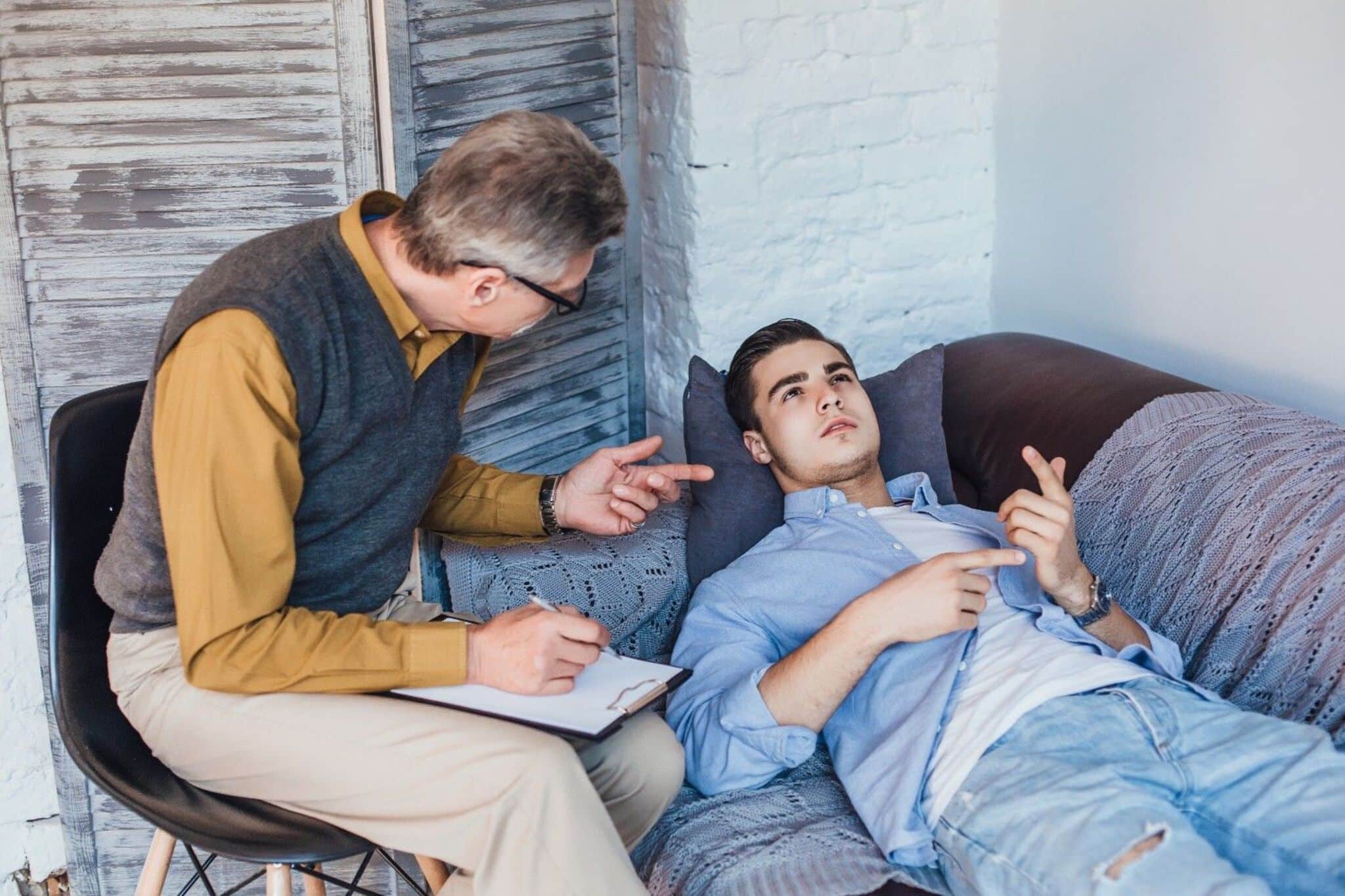A relationship with coffee is often a long-term one. It greets and meets you every day. But this relationship can turn extremely toxic sometimes and breaking up remains the only solution to survive. Cutting back on caffeine and coffee can result in serious headaches and other withdrawal symptoms. When it comes to coffee withdrawal, fatigue and irritability would be the most common symptoms.
Caffeine withdrawal may have a negative impact on many of your daily activities, and mental health in the short term. Fortunately, online psychiatry provides supportive, personalized, and compassionate care to help you move through this transition.
You need to understand the caffeine withdrawal process and the stakes involved to manage it effectively, especially for individuals dealing with anxiety and depression.
What is Caffeine?
Caffeine is a natural stimulant that is mostly found in coffee, tea, energy drinks and chocolates. It is classified as one of the most widely consumed psychoactive substances in the world. It works by stimulating the central nervous system, causing a decrease in fatigue and giving a boost of energy and alertness.
When consumed in moderation, coffee is generally safe for most of the individuals. But if you are a heavy consumer, withdrawing might take a toll on you. To avoid this, it is important to know these potential withdrawal symptoms, as well as how to manage them if you are attempting to cut back or stop drinking caffeine.
How Caffeine Affects the Brain
Caffeine blocks adenosine that is a neurotransmitter responsible for inducing and promoting sleep and relaxation. This increases the activity of other neurotransmitters including dopamine and norepinephrine.
This improves the mood, alertness and concentration. However, prolonged use can lead to dependence, and sudden cessation can trigger withdrawal symptoms that may affect mental health and overall well-being.
Caffeine Dependence and Withdrawal
A regular consumer of caffeine may develop physical dependence on it for functioning normally. This happens after one is consuming high quantities for a long time. This means that once a person relies on caffeine, the body adjusts itself to its effects and, if caffeine is stopped or reduced, withdrawal symptoms may occur.
Symptoms from caffeine withdrawal include mild to severe symptoms. Symptoms usually begin within 12 to 24 hours of the last dose, peak at approximately 20–51 hours, and can last for a week.
Common Symptoms of Caffeine Withdrawal
- Headache: Caffeine withdrawal can cause headaches due to increased blood flow to the brain.
- Fatigue: A crash in energy levels can occur without the stimulation from caffeine.
- Irritability: Mood swings and feeling more irritable than usual is common.
- Difficulty Concentrating: Difficulty focusing and brain fog.
- Depressed Mood: Some may feel sad or depressed from caffeine withdrawal.
- Flu-like Symptoms: Muscle ache, stiffness, even nausea may occur.
- Constipation: Caffeine also stimulates bowel motility, and stopping caffeine may slow digestion.
How Caffeine Interacts with Psychiatric Medications and Mental Health
Caffeine can worsen anxiety and panic disorders because it can act as a stimulant with increased heart rate and a nervous feeling. Although the moderate consumption of caffeine can lift mood and increase energy, increased or reduced levels of caffeine consumption can lead to softened mood, irritability, and depressive symptoms.
Individuals diagnosed with attention-deficit/hyperactivity disorder (ADHD) might feel that caffeine helps them focus and stay composed, however, it could also lead to increased jitteriness and anxiety.
Caffeine can significantly interfere with sleep, such as missed sleep episodes, worsening insomnia, and poor sleep quality, which are risk factors for developing symptoms of depression, anxiety, and bipolar disorder.
How Online Mental Health Services Help in Treating Anxiety and Caffeine Dependence
Online mental health services and telepsychiatry services are formidable tools in the treatment of anxiety disorders as well as caffeine dependence. Virtual psychiatry can improve delivery of depression treatment by removing the stress of commuting to the clinic. Common practices for online mental health services include talk therapy, sleep tracking, or even brain stimulation techniques. When caffeine withdrawal is treated with depression, this provides a holistic approach as a complete recovery.
The answer to whether a caffeine addiction is bad or not depends on your physical and emotional health; with the assistance of mental health professionals, a thorough review and evaluation can be made.
Recommended Caffeine Intake
with coffee shops on every other corner, it is quite tempting to overdo it. If you’re thinking about cutting back, track your caffeine intake in a log and take notes on how you feel after consumption
daily. This amount of caffeine consumption generally does not cause adverse effects for most people. However, people with higher sensitivity to caffeine may experience significant issues, even at average intake levels, as they metabolize caffeine more slowly, prolonging its side effects.
Discuss caffeine intake with your clinician, especially when starting or adjusting psychiatric medications. They can guide safe levels of caffeine consumption.
Managing Caffeine Withdrawal
- Gradually taper caffeine: The first method is to slowly taper down your caffeine intake. For instance, if you drink four cups of coffee a day, try drinking three cups for a few days, then two and then one and finally take days off of caffeine.
- Replace caffeinated beverages: Next, you could try replacing coffee with other beverages that contain less caffeine, such as tea or juice. You can also gradually taper these as well.
- Increase water intake: Water intake needs to be increased so as to keep hydrated, and this could help with the caffeine need and withdrawal. Caffeine is a diuretic and can dehydrate you, and add to withdrawal effects.
- Stay away from energy drinks and pre-workout powders: Most energy drinks and powders have high levels of caffeine and other stimulants that can make it difficult to withdraw.
- Find the balance you want with caffeine: Try to find a balance with caffeine. Moderate levels of caffeine can provide positives such as better alertness and mood, while not significantly impacting medications or mental health.
Lifestyle Changes to Ease Withdrawal
- Get Enough Sleep: Aim for 7–9 hours of sleep per night to combat fatigue.
- Exercise Regularly: Physical activity can boost energy and mood.
- Eat a Balanced Diet: Include fruits, vegetables, whole grains, and lean proteins.
- Stay Hydrated: Drink plenty of water to support detoxification.
- Practice Stress Management: Meditation, yoga, and deep breathing can reduce withdrawal stress.
Finding Balance with Caffeine and Mental Health
Caffeine withdrawal and depression can be very interconnected, particularly for individuals receiving psychiatric treatment. Understanding what are symptoms of caffeine withdrawal can help you continue to tilt the odds in your favor, and take precautionary steps towards maintaining mental homeostasis.
With online psychiatry services and mental health services, managing caffeine withdrawal and continuous mental wellness is achievable. Whether you are dealing with caffeine detox side effects or seeking interventions for caffeine addiction, it makes sense to have the right support network in your corner.
When to Seek Medical Help
If you experience major withdrawal symptoms that significantly disrupt your ability to function day to day, or if you are withdrawing from caffeine for more than a week, book an appointment with a doctor or a healthcare provider.
Seek medical advice if you have an underlying mental health condition, since withdrawal symptoms can aggravate mental health conditions, leading to severe symptom exacerbation.
Conclusion
Caffeine withdrawal is a real experience, and it can be hard sometimes. By recognizing the symptoms of caffeine withdrawal and implementing gradual reduction processes, withdrawal can be a softer experience.
It’s critically important that if you are managing a mental health situation, you learn and appreciate how your caffeine intake affects mental health and in terms of your psychiatric medications.
Always consult with your health care provider before making major changes to your caffeine consumption, as moderation and mindfulness are essential by priority for both your physical and mental health.











